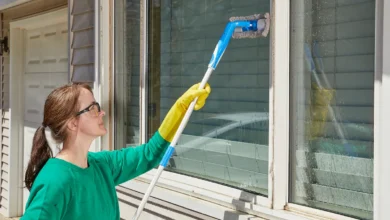Korps Sukarela: The Unsung Heroes of Indonesia’s Humanitarian Force

What is Korps Sukarela?
The Korps Sukarela (KSR), which translates to “Volunteer Corps,” is a vital component of the Palang Merah Indonesia (PMI), also known as the Indonesian Red Cross. This organization comprises trained volunteers who actively engage in humanitarian missions, disaster relief, first aid response, community outreach, and more. As Indonesia faces various natural disasters and public health challenges, Korps Sukarela stands as a frontline force offering care, hope, and aid to those in need. Rooted in the spirit of altruism and civic responsibility, Korps Sukarela empowers everyday citizens to become heroes through training, discipline, and community service.
History and Evolution of Korps Sukarela
The history of Korps Sukarela dates back to the post-independence period in Indonesia when national unity and humanitarian efforts were most needed. As PMI began organising its activities, the need for a dedicated and organised team of trained volunteers became clear. From that vision, KSR units began forming in universities, local PMI branches, and urban communities.
Initially informal and localised, Korps Sukarela evolved into a nationally recognised volunteer organisation known for its consistent participation in emergency response and long-term development initiatives.
Over the decades, KSR has grown into a structured movement with regional, municipal, and institutional chapters. Today, it plays a critical role not just during disasters but also in public health campaigns, social events, and environmental efforts.
How to Become a Member of Korps Sukarela
Joining Korps Sukarela is open to all Indonesian citizens and even foreigners residing in Indonesia. Here’s a typical path to becoming a member:
- Age Requirement: 18 years or older
- Educational Minimum: At least junior high school graduate (SLTP/sederajat)
- Health Status: Must be in excellent physical and mental health
- Training: Must complete a minimum of 76 hours of basic training
- Commitment: Willing to serve voluntarily in disaster response and social programs
Most new members join through university-based KSR units or via recruitment drives organized by local PMI chapters. The training includes first aid, evacuation procedures, logistical coordination, and psychosocial support. Advanced training is provided for members who seek to specialize in particular fields, such as emergency health services or disaster mitigation.
Core Roles and Responsibilities of Korps Sukarela
The responsibilities of Korps Sukarela are diverse, covering both emergency and non-emergency services. Some of the primary roles include:
Disaster Response
Indonesia is susceptible to earthquakes, tsunamis, floods, and volcanic eruptions. Korps Sukarela volunteers are among the first to arrive, helping with:
- Evacuation of victims
- Setting up temporary shelters
- Providing first aid and emergency medical services
- Assisting in logistics and aid distribution
Blood Donation Campaigns
Many KSR units coordinate and support blood donation activities. They help manage donation camps, recruit donors, and educate the public about the importance of regular blood donation.
Community Health Initiatives
KSR volunteers often engage in the following:
- Free medical check-ups
- COVID-19 vaccination drives
- Public hygiene campaigns
- Mental health workshops
- Health education in schools and local communities
Youth Engagement and Peer Education
In many universities, KSR members conduct training sessions for high school students, focusing on peer education about:
- HIV/AIDS awareness
- Drug abuse prevention
- Conflict resolution and peacebuilding
- Environmental conservation
The Organizational Structure of Korps Sukarela
Korps Sukarela is divided into structured units that function under the supervision of the local PMI branch. The hierarchy includes:
- Commandant or Coordinator (usually elected)
- Training and Development Officers
- Logistics and Operations Teams
- Public Relations and Outreach Division
Each team ensures that all members are well-prepared and deployed efficiently during events or emergencies. Monthly meetings, simulation exercises, and refresher courses are regularly held to maintain readiness and proficiency.
Korps Sukarela at Universities: A Youth-Driven Force
One of the strongest backbones of Korps Sukarela is the university-based units. Across Indonesia, student organizations affiliated with PMI operate as UKM KSR PMI (Student Activity Units of Korps Sukarela). These units train students to respond to emergencies, contribute to humanitarian missions, and even lead awareness campaigns on their campuses.
University chapters are often highly active due to the energy, idealism, and availability of student volunteers. These units also serve as a breeding ground for future healthcare workers, community leaders, and policy advocates.
The Impact of Korps Sukarela on Indonesian Society
The contribution of Korps Sukarela goes far beyond statistics. However, here are some measurable impacts:
- Tens of thousands of volunteers are currently active across the nation.
- Hundreds of disaster response missions are carried out each year.
- Millions of lives are touched through public health and social programs.
- Thousands of university students are trained annually in emergency and social service skills.
These volunteers often work behind the scenes, yet their efforts shape communities, save lives, and foster hope.
Challenges Faced by Korps Sukarela Volunteers
While noble, volunteering with Korps Sukarela is not without challenges. Common issues include:
- Physical Risk: Responding to disasters can be dangerous.
- Emotional Toll: Constant exposure to trauma can impact mental health.
- Lack of Resources: Volunteers often work with limited equipment.
- Recognition Gap: Their contributions sometimes go unnoticed or underappreciated.
- Time Management: Balancing volunteering with personal or academic responsibilities.
Despite these, the motivation to serve the nation and help those in need drives KSR members to continue their mission.
Success Stories of Korps Sukarela
Many members of Korps Sukarela go on to become prominent figures in healthcare, disaster management, and community leadership. Some have received national awards for their service. Others have launched their NGOs or joined international organisations, including the Red Cross, Doctors Without Borders, and the United Nations.
One notable example is the KSR unit from Yogyakarta, which played a crucial role in the 2010 Mount Merapi eruption response, enabling the evacuation of villagers and the establishment of shelters within hours of the eruption.
How to Support or Collaborate with Korps Sukarela
Even if you are not a member, you can still support Korps Sukarela by:
- Donating to PMI’s disaster relief fund
- Offering logistical or transport help during emergencies
- Collaborating on community service projects
- Providing training or expertise as a guest speaker
- Sharing their social media campaigns and public awareness content
Many companies, universities, and NGOs actively partner with KSR units for CSR projects, awareness drives, and training programs.
Conclusion: Korps Sukarela is the Heartbeat of Humanitarianism in Indonesia
In a country as dynamic and disaster-prone as Indonesia, Korps Sukarela represents the unwavering spirit of compassion and resilience. These volunteers are not paid, not forced, and often not even recognized publicly. Yet, they show up — rain or shine, disaster or calm — to protect, educate, and care for those in need.
Their dedication makes them more than volunteers; it makes them the living soul of the Indonesian humanitarian movement. As citizens, institutions, or policymakers, we must honour, support, and strengthen Korps Sukarela — because a nation with strong volunteers is a nation ready for any storm.
You May Also Read: Mexico Experience Small Business Recovery After Natural Disasters




